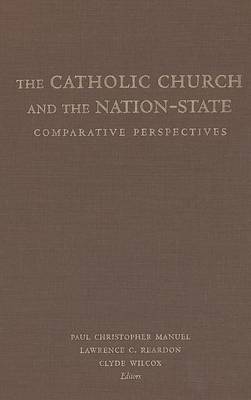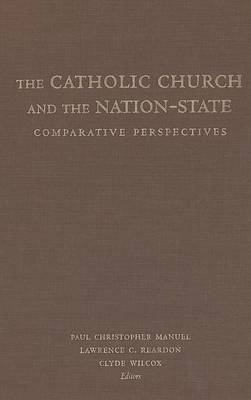
- Afhalen na 1 uur in een winkel met voorraad
- Gratis thuislevering in België vanaf € 30
- Ruim aanbod met 7 miljoen producten
- Afhalen na 1 uur in een winkel met voorraad
- Gratis thuislevering in België vanaf € 30
- Ruim aanbod met 7 miljoen producten
The Catholic Church and the Nation-State
Comparative Perspectives
Omschrijving
Presenting case studies from sixteen countries on five continents, The Catholic Church and the Nation-State paints a rich portrait of a complex and paradoxical institution whose political role has varied historically and geographically. In this integrated and synthetic collection of essays, outstanding scholars from the United States and abroad examine religious, diplomatic, and political actions--both admirable and regrettable--that shape our world. Kenneth R. Himes sets the context of the book by brilliantly describing the political influence of the church in the post-Vatican II era. There are many recent instances, the contributors assert, where the Church has acted as both a moral authority and a self-interested institution: in the United States it maintained unpopular moral positions on issues such as contraception and sexuality, yet at the same time it sought to cover up its own abuses; it was complicit in genocide in Rwanda but played an important role in ending the horrific civil war in Angola; and it has alternately embraced and suppressed nationalism by acting as the voice of resistance against communism in Poland, whereas in Chile it once supported opposition to Pinochet but now aligns with rightist parties.
With an in-depth exploration of the five primary challenges facing the Church--theology and politics, secularization, the transition from serving as a nationalist voice of opposition, questions of justice, and accommodation to sometimes hostile civil authorities--this book will be of interest to scholars and students in religion and politics as well as Catholic Church clergy and laity. By demonstrating how national churches vary considerably in the emphasis of their teachings and in the scope and nature of their political involvement, the analyses presented in this volume engender a deeper understanding of the role of the Roman Catholic Church in the world.
Specificaties
Betrokkenen
- Uitgeverij:
Inhoud
- Aantal bladzijden:
- 298
- Taal:
- Engels
- Reeks:
Eigenschappen
- Productcode (EAN):
- 9781589011144
- Verschijningsdatum:
- 16/08/2006
- Uitvoering:
- Hardcover
- Formaat:
- Genaaid
- Afmetingen:
- 157 mm x 234 mm
- Gewicht:
- 535 g

Alleen bij Standaard Boekhandel
Beoordelingen
We publiceren alleen reviews die voldoen aan de voorwaarden voor reviews. Bekijk onze voorwaarden voor reviews.








